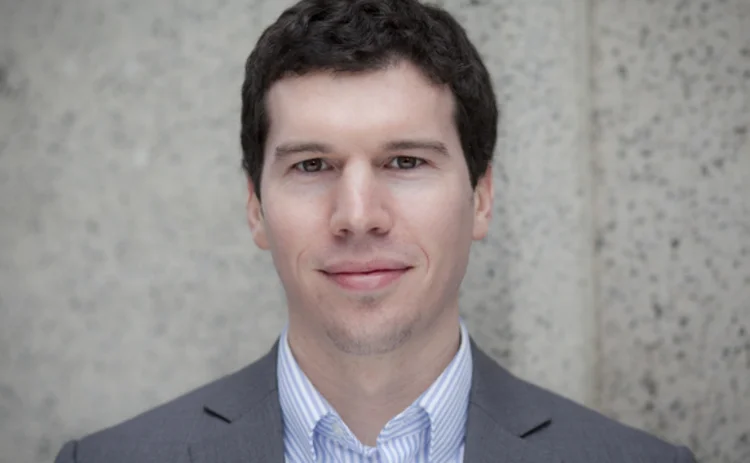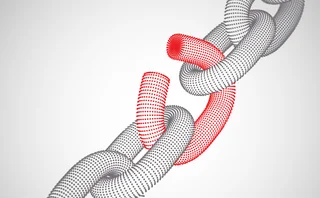Jake Thomases: Blissfully Ignorant

Stuart Firestein is a man that knows things. His published papers include "A novel role for jun N-terminal kinase signaling in olfactory sensory neuronal death," "Chromosomal location-dependent nonstochastic onset of odor receptor expression," and several others that similarly roll off the tongue. When it comes to neuroscience especially, it's hard to imagine there are a lot of people who know more things than the chair of the Biological Sciences department at New York's Columbia University.
Firestein recently gave a speech at the Secret Science Club in Brooklyn, which is a very non-secret collection of curious minds (me) and half-drunk hipsters (everybody else) who gathered at a local hall to hear some of the things Firestein knows. But all he wanted to talk about was what he doesn't know, and what everybody else doesn't know.
Along with the olfactory system of salamanders, his favorite topic these days is ignorance. He likes it so much he's written a book on it. Ignorance, he argues, is the motor powering the perpetual motion machine that is science. Science is less about building on facts already in existence than in groping, sometimes half-blindly, for that which remains mysterious. It's like looking for a black cat in a dark room, only sometimes the cat isn't even there. The only thing he likes more than a successful experiment is a failed one, because failure prompts a series of new questions.
Ignorance in Financial IT?
As I listened to him expound on the virtues of having no answers, I couldn't help but wonder how the eminent professor would fare in our world of financial IT. It might be a complete disaster. Goldman Sachs doesn't pay its technologists to administer failed experiments or to revel in the journey while shrugging at the endgame. When Jon Corzine said, "I simply don't know where the money is," Congress didn't stand up and applaud the fact that his answer led to more questions.
Financial firms love answers: LOVE them. They love to know how to trade better, what technology is going to allow that to happen, how much it will cost, and when it will be ready. Cloud, despite its slow adoption by the industry, is considered a goal, a tangible result to strive for. Because of the collective work that cloud providers have done to improve their offering, all I hear now is that startup companies would be foolish not to create all their applications and use services through the cloud, and even that established exchanges will start to move data processing services there. Cloud is cheap, it's fast, and it's getting more secure - a tangible goal.
Or what about collocation technology? At some point, somebody came up with the idea of putting a server next to a matching engine and a new level of very profitable low latency trading was born. Now, says Mayur Kapani, VP of trading technology at IntercontinentalExchange (ICE), exchanges are looking into allowing firms to actually move inside their matching engine for microsecond latency. Yes, it is a continuous quest, and after you go inside the matching engine you'll be able to share the same microchip and eventually connect directly to Duncan Niederauer's brain. But the successful completion of each step is more rewarding than the great unknown.
If there was ever a time when Firestein wouldn't be an outcast, though, it is in the era of Dodd-Frank. There are indeed many more questions than answers these days. What will the rules be? When are we expected to comply? Will these rules look the same six months from now? Dollars are being diverted from core competencies and innovation to possible compliance solutions. And who even knows whether the data repositories necessary today will be the ones necessary tomorrow. Rob Passarella, managing director of institutional markets at Dow Jones, even believes there will be an effort to reinstate Glass-Steagall, which doesn't exactly jive with the business models of JPMorgan Chase and Bank of America Merrill Lynch. Overconfidence, and the ensuing overcommittment, can be a deadly quality in times of uncertainty; every firm can use a guy that knows that he doesn't know.
The Street and I Are Unconvinced
Personally, I find Firestein's approach depressing. What's the point of any discovery if you can't feel like you're a step closer to some ultimate knowledge, however far away that ultimate knowledge may still be? What's the point of walking toward a house when the house moves five feet away with every step? When my friend and I cornered Firestein after his lecture, he doubled down, insisting that he's perfectly happy to have all of his scientific achievements thrown in the dumpster in 15 years as long as they led to a bunch of other experiments. My friend agreed, delighting in the fact that Ptolemeic astronomy crumbled in the face of Copernican astronomy.
I don't get it. Give me goals any day. Give me step-by-step methodology. Let me know that the platform I just built will inspire future platforms. Ignorance may be wonderful for academia; I'm not sure it could get a job at Goldman Sachs.
Only users who have a paid subscription or are part of a corporate subscription are able to print or copy content.
To access these options, along with all other subscription benefits, please contact info@waterstechnology.com or view our subscription options here: https://subscriptions.waterstechnology.com/subscribe
You are currently unable to print this content. Please contact info@waterstechnology.com to find out more.
You are currently unable to copy this content. Please contact info@waterstechnology.com to find out more.
Copyright Infopro Digital Limited. All rights reserved.
As outlined in our terms and conditions, https://www.infopro-digital.com/terms-and-conditions/subscriptions/ (point 2.4), printing is limited to a single copy.
If you would like to purchase additional rights please email info@waterstechnology.com
Copyright Infopro Digital Limited. All rights reserved.
You may share this content using our article tools. As outlined in our terms and conditions, https://www.infopro-digital.com/terms-and-conditions/subscriptions/ (clause 2.4), an Authorised User may only make one copy of the materials for their own personal use. You must also comply with the restrictions in clause 2.5.
If you would like to purchase additional rights please email info@waterstechnology.com
More on Emerging Technologies
S&P’s $1.8 billion buy, an FIA restructure, a tokenization craze, and more
The Waters Cooler: CAIS creates CAISey, BNY deploys EquiLend, and more in this week’s news roundup.
When it comes to cybersec, the walls of separation are too high
Waters Wrap: Anthony examines some recent statements made by prominent cybersecurity experts and why those words might ring hollow.
Larry Fink: ‘We need to be tokenizing all assets’
The asset manager is currently exploring tokenizing long-term investment products like iShares, with an eye on non-financial assets down the road.
Examining how adaptive intelligence can create resilient trading ecosystems
Researchers from IBM and Wipro explore how multi-agent LLMs and multi-modal trading agents can be used to build trading ecosystems that perform better under stress.
Waters Wavelength Ep. 335: Some tech talk...kinda
This week, Wei-Shen and Tony talk about some recent events making headlines.
Moody’s exploring blockchain’s impact on digital bond ratings
Blockchain and crypto were meant to eliminate conventional finance’s risks, but Risk Live North America panelists said such risks have not been reduced, and new ones have been introduced.
S&P Global partners with IBM, Eventus launches Frank AI, Tradeweb expands algo execution abilities, and more
The Waters Cooler: Arcesium makes waves with Aquata Marketplace, NYSE Cloud flows into Blue Ocean Technologies, and more in this week’s news roundup.
Is market data compliance too complex for AI?
The IMD Wrap: Reb looks at two recent studies and an article by CJC, which cast doubt on AI’s ability to manage complexity.







